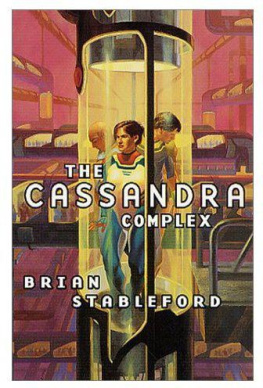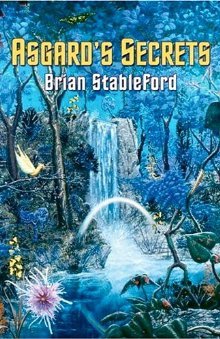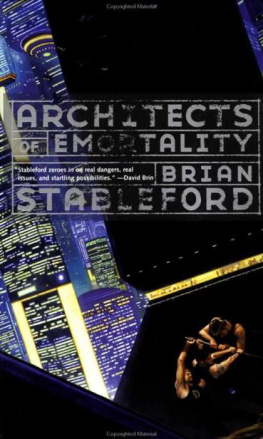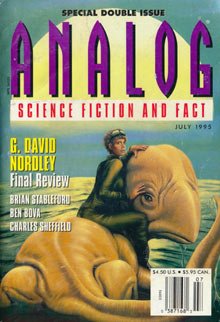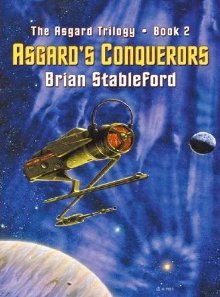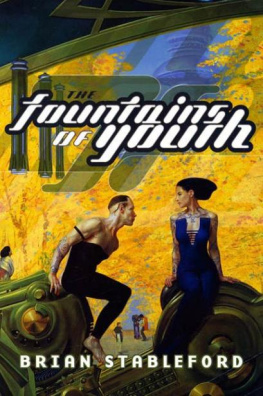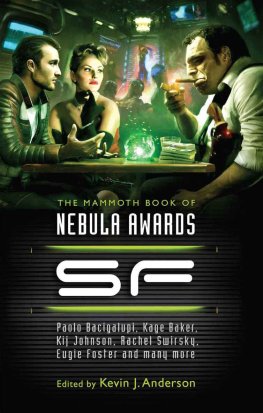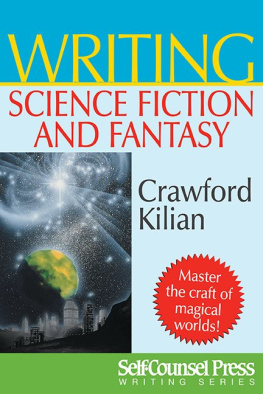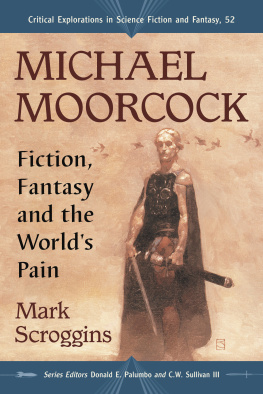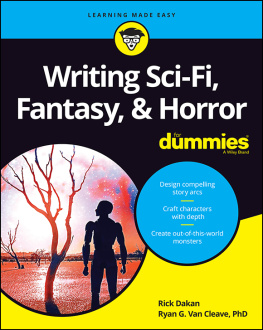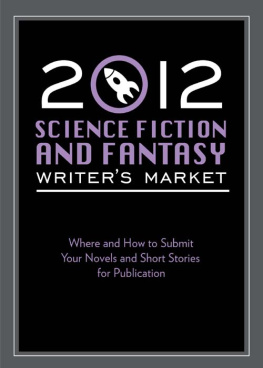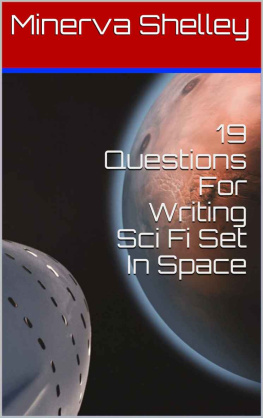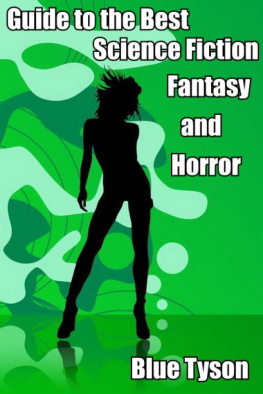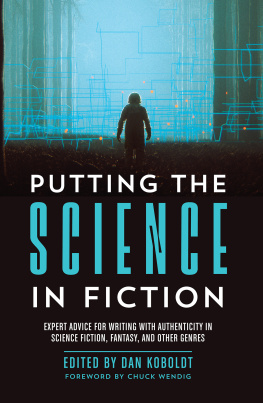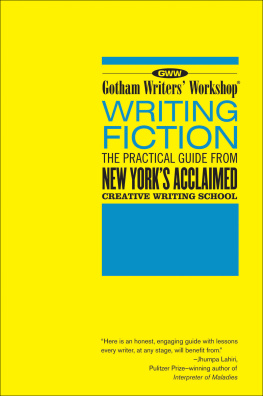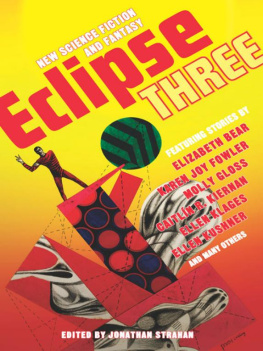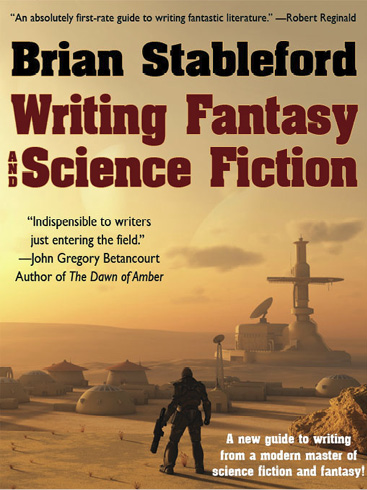
COPYRIGHT INFORMATION
Copyright 1997, 2012 by Brian Stableford
Published by Wildside Press LLC
www.wildsidebooks.com
AUTHORS NOTE
This book was originally commissioned by Hodder & Stoughton for their Teach Yourself imprint, under which it was published in 1997. I have deleted or modified a few references which would have been anachronistic now, but have not otherwise revised or updated it.
CHAPTER ONE
FALLING SPARROWS: WORLDS WITHIN TEXTS
The Scope of This Book
The purpose of this book is to help you to write fantasy and science fiction stories. Writing is something you have to teach yourself, by practicing long and hard, but I hope this book will help you to practice more effectively. I shall try to achieve that by making you more aware of what you are doing when you write, enabling you to examine the inner workings of your stories and plan their construction more carefully.
Readers do not, of course, dissect stories in this way. Although they could, if asked, describe the characters or summarize the plot of a story they have read, they did not analyze its components while they were enjoying the text. Nor is it strictly necessary for writers to carry out such analyses as they write; indeed, the ultimate aim of teaching yourself to write is to make the process of writing as comfortable as the process of reading.
Ideally, writing ought to be like riding a bicycle: something you know how to do without having to think consciously about exactly what it is that you are doing. In order to get to that point, however, it may be necessary to go through a phase when you work step by painful step, planning beginnings and endings, thinking about plot structures, considering alternative viewpoints and learning. Some writers do not need to do this, because it all comes naturally to them, but they are rareand it certainly does no harm to think more deeply about what the process of writing involves.
Many of the problems which arise in the course of writing fantasy and science fiction stories are common to all kinds of stories. Much of what I say in these pages will, therefore, be applicable to any kind of fiction writing. I shall try to bring the particular problems of writing fantasy and science fiction into clear focus, but in the interests of making this guide as complete as possible I shall not skip over the fundamental aspects of story construction. All I shall take for granted is that would-be writers can spell, punctuate and construct grammatical sentences.
As well as describing the particular problems of writing fantasy and science fiction, and offering practical suggestions as to how they might be solved, I shall attempt to explain why the problems arise and how they effect the various kinds of fantasy and science fiction to be found in the marketplace. The more you understand about the anatomy of stories and the ways in which readers use them, the better equipped you will be to find new ways to tackle the perennial problemsand novelty of approach is highly valued in fantasy and science fiction.
I shall not go to great lengths here to describe or define fantasy and science fiction. It is exceedingly difficult to figure out what it is that all stories within any publishing category have, or ought to have, in commonthe article on Definitions in the Orbit Encyclopedia of Science Fiction consists of six columns of dense and convoluted argumentand if you have picked up this book you probably have as good an idea as anyone else as to what the terms might signify.
From the viewpoint of the writer, the most significant aspect of fantasy and science fiction is that stories of these kinds are either set in imaginary worlds or feature the appearance in the familiar world of some imaginary entity. Although such imaginary intrusions may take different forms in fantasy and science fiction, and may operate according to different rules, the way they function as story devices is very similar. There are far more problems common to both genres than unique to either, so it makes sense to cover them both in the same guide-book.
In subsequent chapters I shall describe the process of constructing real and imaginary worlds and populating them with human and non-human characters in a step-by-step fashion. Before I do that, however, it will be helpful to lay down some general foundations.
* * * *
The Pleasures of Creativity
Why should you want to write fantasy and science fiction?
There are, of course, many possible answers to this question and it is highly likely that every writers motives are mixed. Writers can express ideas and emotions that are important to them but have no other means of expression. Some of these ideas may be fantastic and some of the emotions may be given clearer voice in fantastic fiction. The free exercise of the imagination can be exhilarating, and it offers scope for many kinds of artistry. We are all fantasists at heart; however mundane our everyday lives may be we are all dreamers and daydreamers, and our daydreams are among our most precious and personal possessions.
In the final analysis, what writers love about writing is the power of creativity, and writing fantasy or science fiction offers greater scope for the exercise of that power than writing most other kinds of fiction. With these opportunities, howeveras with all opportunitiescome certain difficulties that writers of other kinds of fiction might not have to face, but the reward is worth the risk.
The real world is a vast and complicated place, which we must take as we find, but even writers who choose to set their stories in the known world, accepting all its limitations, have a precious kind of power. The power we have to control what happens in our lives is very limited; the richest king there ever was could not control the thoughts and feelings of the most wretched slaves bound to his obediencebut even if you were the poorest writer there ever was, who never sold a line, you would have far greater power over the worlds within your texts than that.
Within your texts nobody, be he slave or king, philosopher or lunatic, can consider a thought or experience a feeling without your say so. Without your specification, no one within your texts has any thoughts or feelings, or any existence at all. Writers of realistic fiction use this power sparingly, but it has no limitations of its own; a writer of fantastic fictions can easily overstep the bounds of actual existence.
Within your texts, anything can happen; all you have to do is say so. If the crippled boy requires a miracle before he can walk again, you can work it simply by saying and then he got up and walked. If you want God to descend from His Heaven to bow down before the child in question and apologize for putting him in the wheelchair in the first place all you have to do is write it down. Within your story, even God is only one more character (or not, if you care to rule Him out); the power of Creation rests entirely in your hands. Within your story, not a sparrow will fall without your taking the trouble to record its fall, and if you do not want sparrows to fall at all you can save the entire species from that inconvenience with a single sentence.
Writing might be unalloyed joy, were it not for the fact that power is always shadowed by responsibility. Thankfully, the absolute power that writers have is not weighted down with absolute responsibility. It can neither be suppressed nor diminished, except by choice. All writers know, however, that the joy to be obtained from creativity is not a product of the writing processactual writing is hard work, more taxing in some respects than manual laborbut a matter of looking back at something written and taking pride in the accomplishment.


